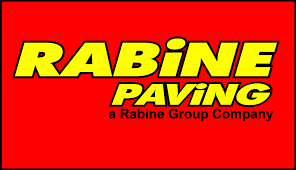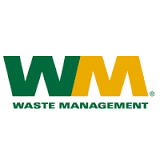Tennessee Stormwater Management

CP200B: QPSWPPP+ - Qualified Preparer of Stormwater Pollution Prevention Plans - ADVANCED
Type: Virtual Class | Price: $1224.00
Program Overview
The Qualified Preparer of Stormwater Pollution Prevention Plans - Advanced (QPSWPPP+) credentialing utilizes a blended training format comprised of six (6) ADA compliant self-paced interactive online courses and four (4) Virtual Instructor Led Training (VILT) sessions.
This Advanced credentialing program educates individuals to prepare Construction Stormwater Pollution Prevention Plan (SWPPP) in compliance with the National Pollutant Discharge Elimination System (NPDES) permit program.
As a QPSWPPP+, you will receive a dual credential as a QCIS+, which qualifies you to inspect and maintain construction sites for stormwater compliance. This program covers the principles and practices of erosion and sediment control as well as the proper reporting and documentation requirements.
The additional VILT sessions are designed to enhance participants' comprehension by fostering collaboration among peers, engaging with the instructor for guidance, and completing inspection exercises to apply the concepts learned in the online courses.
Here is what you get:
- Weekly real-time interaction with our Stormwater Training Instructor
- Advance your skills with live Q&A and real construction site experiences
- Courses start every two weeks
- Each Virtual Instructor Led Training (VILT) session is 1-hour
- Prepare a mock Stormwater Inspection Report
- Step-by-step SWPPP Preparation training
This program has been reviewed and recognized by the EPA and is a Level 300 United States Green Build Council approved training.
| Learn More |

CI200B: QCIS+ - Qualified Compliance Inspector of Stormwater - ADVANCED
Type: Virtual Class | Price: $999.00
Program Overview
The Qualified Compliance Inspector of Stormwater – Advanced (QCIS+) credentialing program employs a blended training approach, combining five ADA compliant self-paced interactive online courses with three Virtual Instructor Led Training (VILT) sessions. This Advanced program equips individuals with the necessary qualifications to conduct thorough stormwater inspections in accordance with the National Pollutant Discharge Elimination System (NPDES) permitting program.
These courses cover a range of topics including erosion and sediment control, pollution prevention (good housekeeping), on-site construction inspections, and the regulations outlined by the NPDES permitting program. Upon successful completion of these courses, participants will be well-equipped to perform construction stormwater inspections in compliance with NPDES standards.
The additional VILT sessions are designed to enhance participants' comprehension by fostering collaboration among peers, engaging with the instructor for guidance, and completing inspection exercises to apply the concepts learned in the online courses.
This program has been reviewed and recognized by the EPA and is a Level 300 United States Green Build Council approved training.
View the StormwaterONE Live Training Calendar
| Learn More |

CP216: QPSWPPP - Qualified Preparer of Stormwater Pollution Prevention Plans - Tennessee
Type: Online | Price: $924.00
Program Overview
The 16.5-hour, Qualified Preparer of Stormwater Pollution Prevention Plan (QPSWPPP) credentialing program is comprised of six ADA compliant self-paced interactive online courses.
This program educates individuals to prepare Construction Stormwater Pollution Prevention Plan (SWPPP) in compliance with the National Pollutant Discharge Elimination System (NPDES) permitting program.
As a QPSWPPP, you will receive a dual credential as a QCIS, which qualifies you to inspect and maintain construction sites for stormwater compliance. This program covers a range of topics including erosion and sediment control, pollution prevention (good housekeeping), on-site construction inspections, and the regulations outlined by the National Pollutant Discharge Elimination System (NPDES) permitting program.
This program has been reviewed and recognized by the EPA and is a Level 300 United States Green Build Council approved training.
Upgrade to our Virtual Instructor Led Training here!
| Learn More |

CP216R: QPSWPPP-Recert - Qualified Preparer of Stormwater Pollution Prevention Plans Recert - Tennessee
Type: Online | Price: $549.00
Program Overview
The 9-hour, Qualified Preparer of Stormwater Pollution Prevention Plans (QPSWPPP) online recert program is comprised of six ADA compliant self-paced interactive online courses.
This program is designed to recert individuals who possess a QCIS or QPSWPPP credential to prepare compliant Construction Stormwater Pollution Prevention Plans (SWPPPs).
As a QPSWPPP, you will receive a dual credential as a QCIS, which qualifies you to inspect and maintain construction sites for stormwater compliance. This program covers a range of topics including erosion and sediment control, pollution prevention (good housekeeping), on-site construction inspections, and the regulations outlined by the National Pollutant Discharge Elimination System (NPDES) permitting program.
This program has been reviewed and recognized by the EPA and is a Level 300 United States Green Build Council approved training.
| Learn More |

CI216: QCIS - Qualified Compliance Inspector of Stormwater - Tennessee
Type: Online | Price: $799.00
Program Overview
The Qualified Compliance Inspector of Stormwater (QCIS) credentialing program comprises five self-paced interactive online courses, all designed to be ADA compliant.
These courses cover a range of topics including erosion and sediment control, pollution prevention (good housekeeping measures), on-site construction inspections, and the regulations outlined by the National Pollutant Discharge Elimination System (NPDES) permitting program.
Upon successful completion, participants will be well-equipped to perform construction stormwater inspections in compliance with NPDES standards.
This program has been reviewed and recognized by the EPA and is a Level 300 United States Green Build Council approved training.
Upgrade to our Virtual Instructor Led Training here!
| Learn More |

CI216R: QCIS-Recert - Qualified Compliance Inspector of Stormwater Recert - Tennessee
Type: Online | Price: $399.00
Program Overview
The 7-hour, Qualified Compliance Inspector of Stormwater (QCIS) online recert program is comprised of five self-paced interactive online courses, all designed to be ADA compliant.
This program is designed to re-educate individuals who possess a QCIS or QPSWPPP credential to properly inspect and maintain a construction site in compliance with the National Pollutant Discharge Elimination System (NPDES) permit program.
These courses cover a range of topics including erosion and sediment control, pollution prevention (good housekeeping), on-site construction inspections, and the regulations outlined by the National Pollutant Discharge Elimination System (NPDES) permitting program.
Upon successful completion, participants will be well-equipped to perform construction stormwater inspections in compliance with NPDES standards.
This program has been reviewed and recognized by the EPA and is a Level 300 United States Green Build Council approved training.
| Learn More |

IM299: QISM - Qualified Industrial Stormwater Manager
Type: Online | Price: $799.00
Program Overview
The Qualified Industrial Stormwater Manager (QISM) credentialing program consists of eight (8) online chapters, culminating in an exam where you'll showcase your skills through a submitted action plan and site design assignment to earn your credential.
This program educates individuals to prepare and inspect Industrial Stormwater Pollution Prevention Plans (SWPPP) in compliance with the National Pollutant Discharge Elimination System (NPDES) permit program.
As a QISM, you will also receive the education which qualifies you to inspect and maintain industrial sites for stormwater compliance as well as create the Industrial SWPPP. This program covers the principles and practices of industrial stormwater management as well as the proper reporting and documentation requirements for ensuring compliance under the NPDES permit program.
| Learn More |

CS2RE: RUSLE2 - Revised Universal Soil Loss Equation (RUSLE)
Type: Online | Price: $224.00
Program Overview
This RUSLE2 Modeling course delves into the principles of soil erosion, the mechanics behind the Revised Universal Soil Loss Equation (RUSLE) models, and their practical applications in various environmental and construction settings. Participants will learn to use the official NRCS RUSLE2 software for accurate erosion prediction and effective soil conservation strategies. This RUSLE2 training course is designed for qualified SWPPP developers, environmental professionals, land developers, and anyone involved in land management, providing both theoretical knowledge and practical skills necessary to mitigate erosion impact and enhance land sustainability.
A key component of the course is the Practical Application Assignment, which bridges theoretical knowledge with real-world scenarios. This hands-on assignment challenges students to apply the RUSLE2 model to actual case studies, enabling them to analyze and predict soil erosion under various land-use conditions. By engaging with this practical exercise, participants will enhance their ability to design and implement effective soil conservation measures tailored to specific project needs, thereby solidifying their learning and ensuring they can apply their knowledge effectively in their professional environments.
Common uses for RUSLE2 Modeling in stormwater management include:
-
Predict Erosion Rates: Calculate soil loss for each project phase, ensuring erosion controls maintain conditions as protective as pre-construction levels.
-
Evaluate Sediment Risk: Determine sediment risk levels (low, medium, or high) based on soil loss rates, factoring in receiving water risk.
-
Manage Sediment Delivery: Select and evaluate temporary Best Management Practices (BMPs) to minimize sediment transport to water bodies.
-
Meet Regulatory Requirements: Demonstrate compliance with Total Maximum Daily Load (TMDL) limits, including mass-based wasteload allocation for pollutants like nutrients, metals, and toxins.
-
Nutrient Management: Address nutrient-rich sediments caused by disturbed soils such as nitrogen, phosphorus, and potassium.
-
Implement Buffer Zone Alternatives: Use RUSLE2 Modeling to ensure erosion and sediment controls achieve equivalent sediment reduction to a 50-foot undisturbed natural buffer where maintaining such a buffer is infeasible.
-
File Notice of Termination (NOT): Provide computational proof and photographic evidence to verify conditions align with pre-construction and post-construction computations.
| Learn More |

CS2OG: Oil & Gas - Stormwater Management for Oil and Gas Construction Activities
Type: Online | Price: $799.00
Program Overview
The 15-hour, Stormwater Management for Oil and Gas Construction Activities online certificate program is comprised of seven (7) courses and corresponding exams.
This credentialing program is a problem-centered curriculum which covers conditions commonly encountered during oil and gas construction activities pertinent for stormwater management.
The program is designed for individuals involved in stormwater management for oil and gas construction activities including inspectors, plan designers, regulators and BMP installers.
The program's central focus educates and trains on how to select, install and maintain Best Management Practices (BMPs) for common conditions encountered during oil and gas exploration and construction activities.
| Learn More |

CS2OGR: Oil & Gas-Recert - Stormwater Management for Oil and Gas Construction Activities - Recert
Type: Online | Price: $374.00
Program Overview
The 15-hour, Stormwater Management for Oil and Gas Construction Activities online recert program is comprised of seven (7) courses and corresponding exams.
This credentialing program is a problem-centered curriculum which covers conditions commonly encountered during oil and gas construction activities pertinent for stormwater management.
The program is designed for individuals involved in stormwater management for oil and gas construction activities including inspectors, plan designers, regulators and BMP installers.
The program's central focus educates and trains on how to select, install and maintain Best Management Practices (BMPs) for common conditions encountered during oil and gas exploration and construction activities.
Prerequisites: Stormwater Management for Oil and Gas Construction Activities (Code: CS2OG)
| Learn More |

CSR00: 2022-2027 Federal Construction General Permit
Type: Online | Price: $199.00
Program Overview
This 4.5-hour computer based training course educates professionals about the Federal Construction General Permit. The Federal Construction General Permit covers stormwater and non-stormwater related construction discharges to waters of the United States from construction sites with a land disturbance area of one acre or more.
The Federal Construction General Permit is applicable for construction sites within Massachusetts, New Hampshire, New Mexico, Indian Country lands, federal facilities, District of Columbia, Puerto Rico and all other U.S. territories.
| Learn More |

CSR00R: Federal Construction General Permit - Recert
Type: Online | Price: $199.00
Program Overview
This 4.5-hour computer based training course educates professionals about the Federal Construction General Permit. The Federal Construction General Permit covers stormwater and non-stormwater related construction discharges to waters of the United States from construction sites with a land disturbance area of one acre or more.
The Federal Construction General Permit is applicable for construction sites within Idaho, Massachusetts, New Hampshire, New Mexico, Indian Country lands, federal facilities, District of Columbia, Puerto Rico and all other U.S. territories.
| Learn More |
Program Overview
This is a bundle of StormwaterONE online courses regarding the Six Minimum Control Measures (MCMs) for Phase II Small Municipal Separate Storm Sewer System (MS4) operators.
Operators of regulated small MS4s are required to design their programs to: reduce the discharge of pollutants to the “maximum extent practicable” (MEP), protect water quality, and satisfy the appropriate water quality requirements of the Clean Water Act.
The implementation of these six elements and associated Best Management Practices (BMPs) are expected to result in significant reduction of pollutants discharged into receiving waterbodies.
Curriculum Includes:
1) Public Education and Outreach
Distributing educational materials and performing outreach to inform citizens about the impacts polluted stormwater runoff discharges can have on water quality.
2) Public Participation/Involvement
Providing opportunities for citizens to participate in program development and implementation, including effectively publicizing public hearings and/or encouraging citizen representatives on a stormwater management panel.
3) Illicit Discharge Detection and Elimination
Developing and implementing a plan to detect and eliminate illicit discharges to the storm sewer system (includes developing a system map and informing the community about hazards associated with illegal discharges and improper disposal of waste).
4) Construction Site Runoff Control
Developing, implementing, and enforcing an erosion and sediment control program for construction activities that disturb 1 or more acres of land (controls could include silt fences and temporary stormwater detention ponds).
5) Post-Construction Runoff Control
Developing, implementing, and enforcing a program to address discharges of post-construction stormwater runoff from new development and redevelopment areas. Applicable controls could include preventative actions such as protecting sensitive areas (e.g., wetlands) or the use of structural BMPs such as grassed swales or porous pavement.
6) Pollution Prevention/Good Housekeeping
Developing and implementing a program with the goal of preventing or reducing pollutant runoff from municipal operations. The program must include municipal staff training on pollution prevention measures and techniques (e.g., regular street sweeping, reduction in the use of pesticides or street salt, or frequent catch-basin cleaning).
| Learn More |

MS299R: MS4 Bundle: Six Minimum Control Measures - Recert
Type: Online | Price: $314.00
Program Overview
This is a bundle of StormwaterONE online courses regarding the Six Minimum Control Measures (MCMs) for Phase II Small Municipal Separate Storm Sewer System (MS4) operators.
Operators of regulated small MS4s are required to design their programs to: reduce the discharge of pollutants to the “maximum extent practicable” (MEP), protect water quality, and satisfy the appropriate water quality requirements of the Clean Water Act.
The implementation of these six elements and associated Best Management Practices (BMPs) are expected to result in significant reduction of pollutants discharged into receiving waterbodies.
Curriculum Includes:
1) Public Education and Outreach
Distributing educational materials and performing outreach to inform citizens about the impacts polluted stormwater runoff discharges can have on water quality.
2) Public Participation/Involvement
Providing opportunities for citizens to participate in program development and implementation, including effectively publicizing public hearings and/or encouraging citizen representatives on a stormwater management panel.
3) Illicit Discharge Detection and Elimination
Developing and implementing a plan to detect and eliminate illicit discharges to the storm sewer system (includes developing a system map and informing the community about hazards associated with illegal discharges and improper disposal of waste).
4) Construction Site Runoff Control
Developing, implementing, and enforcing an erosion and sediment control program for construction activities that disturb 1 or more acres of land (controls could include silt fences and temporary stormwater detention ponds).
5) Post-Construction Runoff Control
Developing, implementing, and enforcing a program to address discharges of post-construction stormwater runoff from new development and redevelopment areas. Applicable controls could include preventative actions such as protecting sensitive areas (e.g., wetlands) or the use of structural BMPs such as grassed swales or porous pavement.
6) Pollution Prevention/Good Housekeeping
Developing and implementing a program with the goal of preventing or reducing pollutant runoff from municipal operations. The program must include municipal staff training on pollution prevention measures and techniques (e.g., regular street sweeping, reduction in the use of pesticides or street salt, or frequent catch-basin cleaning).
| Learn More |
Program Overview
The Introduction to the National Pollutant Discharge Elimination System (NPDES) Permitting Program course will educate individuals of the permitting process and compliance standards of Clean Water Act's National Pollutant Discharge Elimination System.
| Learn More |

CSR99R: Intro to the NPDES Permitting Program - Recert
Type: Online | Price: $199.00
Program Overview
The Introduction to the National Pollutant Discharge Elimination System (NPDES) Permitting Program course will educate individuals of the permitting process and compliance standards of Clean Water Act's National Pollutant Discharge Elimination System.
| Learn More |

CI116A: Stormwater Management for Construction Activities Advanced- (Level 1 Advanced - Contractors, Field Maintenance, Foreman)
Type: Online | Price: $449.00
Program Overview
This Level 1 Advanced program covers an overview of the Clean Water Act, the National Pollutant Discharge Elimination System (NPDES) permit program, the proper installation and maintenance of temporary pollution controls (Best Management Practices - "BMPs") and On-Site Construction Inspections.
This program consists of:
- Five (5) Online/On-demand interactive courses, and
- Two (2) Live 1-hour Virtual Instructor-Led Training (VILT) classes.
| Learn More |

CI116: Stormwater Management for Construction Activity
Type: Online | Price: $349.00
Program Overview
This Level 1 program covers an overview of the Clean Water Act, the National Pollutant Discharge Elimination System (NPDES) permit program, and the proper installation and maintenance of temporary pollution controls (Best Management Practices - "BMPs").
| Learn More |

CI116R: Stormwater Management for Construction Activity - Recert
Type: Online | Price: $349.00
Program Overview
This Level 1 program covers an overview of the Clean Water Act, the National Pollutant Discharge Elimination System (NPDES) permit program, and the proper installation and maintenance of temporary pollution controls (Best Management Practices - "BMPs"
| Learn More |

MO199: Public Education, Outreach and Involvement for MS4s
Type: Online | Price: $99.00
Program Overview
StormwaterONE’s online course for Public Education, Outreach and Involvement for MS4s is designed to cover some of the key components necessary for a Municipal Separate Storm Sewer System (MS4) to adhere to the first two of the six (6) Minimum Control Measures (MCMs) that an operator of an MS4 is required to include in its Stormwater Management Program (SWMP). These control measures are required to meet the conditions of the National Pollutant Discharge Elimination System (NPDES) permit.
This course will cover the requirements, BMPs and Measurable Goals to be developed and implemented for the first Minimum Control Measure which is Public Education and Outreach and the second Minimum Control Measure which is Public Participation and Involvement.
An informed and knowledgeable community is crucial to the success of a Stormwater Management Program (SWMP) since it helps to ensure the following:
- Greater support for the program as the public gains a greater understanding of the reasons why it is necessary and important. Public support is particularly beneficial when operators of MS4s attempt to institute new funding initiatives for the program or seek volunteers to help implement the program; and
- Greater compliance with the program as the public becomes aware of the personal responsibilities expected of them and others in the community. This includes the individual actions they can take to protect or improve the quality of area waters.
As authorized by the Clean Water Act (CWA), the NPDES permit program controls water pollution by regulating point sources that discharge pollutants into waters of the United States. The NPDES program has Phase I and Phase II rulings and control measures. This course also provides a history of the NPDES program as well as an introduction to the MS4 Program for Phase I and Phase II entities.
Guidelines for developing and implementing these control measures are covered in addition to the reasons why public education and outreach as well as public participation and involvement are required. Educational materials, strategies, forming partnerships, reaching diverse audiences and communities are discussed. Implementation challenges are reviewed including alternative advertising methods and targeting population sectors.
Detailed BMPs and specific and quantifiable Measurable Goal examples for each of these BMPs are provided that can be directly used in a Phase I and Phase II Stormwater Management Plan (SWMP).
This course also provides MS4 recordkeeping and annual reporting guidelines as well as a sample Annual Report and additional resources.
| Learn More |

MO199R: Public Education, Outreach and Involvement for MS4s - Recert
Type: Online | Price: $99.00
Program Overview
StormwaterONE’s online course for Public Education, Outreach and Involvement for MS4s is designed to cover some of the key components necessary for a Municipal Separate Storm Sewer System (MS4) to adhere to the first two of the six (6) Minimum Control Measures (MCMs) that an operator of an MS4 is required to include in its Stormwater Management Program (SWMP). These control measures are required to meet the conditions of the National Pollutant Discharge Elimination System (NPDES) permit.
This course will cover the requirements, BMPs and Measurable Goals to be developed and implemented for the first Minimum Control Measure which is Public Education and Outreach and the second Minimum Control Measure which is Public Participation and Involvement.
An informed and knowledgeable community is crucial to the success of a Stormwater Management Program (SWMP) since it helps to ensure the following:
- Greater support for the program as the public gains a greater understanding of the reasons why it is necessary and important. Public support is particularly beneficial when operators of MS4s attempt to institute new funding initiatives for the program or seek volunteers to help implement the program; and
- Greater compliance with the program as the public becomes aware of the personal responsibilities expected of them and others in the community. This includes the individual actions they can take to protect or improve the quality of area waters.
As authorized by the Clean Water Act (CWA), the NPDES permit program controls water pollution by regulating point sources that discharge pollutants into waters of the United States. The NPDES program has Phase I and Phase II rulings and control measures. This course also provides a history of the NPDES program as well as an introduction to the MS4 Program for Phase I and Phase II entities.
Guidelines for developing and implementing these control measures are covered in addition to the reasons why public education and outreach as well as public participation and involvement are required. Educational materials, strategies, forming partnerships, reaching diverse audiences and communities are discussed. Implementation challenges are reviewed including alternative advertising methods and targeting population sectors.
Detailed BMPs and specific and quantifiable Measurable Goal examples for each of these BMPs are provided that can be directly used in a Phase I and Phase II Stormwater Management Plan (SWMP).
This course also provides MS4 recordkeeping and annual reporting guidelines as well as a sample Annual Report and additional resources.
| Learn More |

MI199B: Illicit Discharge Detection and Elimination (IDDE) - ADVANCED
Type: Virtual Class | Price: $299.00
Program Overview
This 5.5-hour virtual instructor led and online training bundle educates professionals about the main tenets of the Illicit Discharge, Detection & Elimination (IDDE) program. This program will discuss the authorized non-stormwater discharges as well as the basics of illicit discharge detection, outfall inspections, and effluent monitoring & sampling.
Come join Brad Flack on the 1st Friday of each Month for a presentation on Illicit Discharge, Detection & Elimination (IDDE). Followed by a 25 question examination to complete this course.
View the StormwaterONE Live Training Calendar
| Learn More |

MI199: Illicit Discharge Detection and Elimination (IDDE)
Type: Online | Price: $124.00
Program Overview
StormwaterONE’s online course for Illicit Discharge Detection and Elimination (IDDE) covers key components necessary for a Municipal Separate Storm Sewer System (MS4) to develop and maintain an IDDE Program. This course covers the available tools that are associated with the National Pollutant Discharge Elimination System (NPDES) of the Clean Water Act (CWA) to establish or re-establish your MS4 IDDE Program.
This course provides insight into finding the sources of discharges and highlights problems in identifying illicit discharge sources. This course also provides information on illicit discharge detection, clues and possible findings, conducting inspections and sampling as well as non-stormwater outfall discharges with examples.
In addition outfall monitoring, program mapping considerations, common approaches to outfall screening including typical physical and chemical indicators are covered. Information on inspection documentation, investigation, reporting and environmental crimes are covered. Lastly, it provides tips on developing an effective IDDE Program.
As authorized by the Clean Water Act (CWA), the NPDES permit program controls water pollution by regulating point sources that discharge pollutants into waters of the United States. The NPDES program has Phase I and Phase II rulings and control measures. This course defines where IDDE is one of the six (6) Minimum Control Measures (MCMs) that the operator of a Phase II regulated small MS4 is required to include in its stormwater management program to meet the conditions of the NPDES permit.
| Learn More |

MI199R: Illicit Discharge Detection and Elimination (IDDE) - Recert
Type: Online | Price: $124.00
Program Overview
StormwaterONE’s online course for Illicit Discharge Detection and Elimination (IDDE) covers key components necessary for a Municipal Separate Storm Sewer System (MS4) to develop and maintain an IDDE Program. This course covers the available tools that are associated with the National Pollutant Discharge Elimination System (NPDES) of the Clean Water Act (CWA) to establish or re-establish your MS4 IDDE Program.
This course provides insight into finding the sources of discharges and highlights problems in identifying illicit discharge sources. This course also provides information on illicit discharge detection, clues and possible findings, conducting inspections and sampling as well as non-stormwater outfall discharges with examples.
In addition outfall monitoring, program mapping considerations, common approaches to outfall screening including typical physical and chemical indicators are covered. Information on inspection documentation, investigation, reporting and environmental crimes are covered. Lastly, it provides tips on developing an effective IDDE Program.
As authorized by the Clean Water Act (CWA), the NPDES permit program controls water pollution by regulating point sources that discharge pollutants into waters of the United States. The NPDES program has Phase I and Phase II rulings and control measures. This course defines where IDDE is one of the six (6) Minimum Control Measures (MCMs) that the operator of a Phase II regulated small MS4 is required to include in its stormwater management program to meet the conditions of the NPDES permit.
| Learn More |
Program Overview
StormwaterONE’s online course for Construction Site Runoff Control for MS4s is designed to cover some of the key components necessary for a Municipal Separate Storm Sewer System (MS4) to adhere to the fourth Minimum Control Measure (MCM) that an operator of an MS4 is required to include in its Stormwater Management Program (SWMP).
This Construction Site Runoff Control Minimum Control Measure is required to meet the conditions of the National Pollutant Discharge Elimination System (NPDES) permit. As authorized by the Clean Water Act (CWA), the NPDES permit program controls water pollution by regulating point sources that discharge pollutants into waters of the United States.
The EPA Phase II Final Rule requires an operator of a regulated small MS4 to develop, implement, and enforce a program to reduce pollutants in stormwater runoff to their MS4 from construction activities that result in a land disturbance of GREATER than or EQUAL to ONE (1) acre.
The MS4 operator is required to have an ordinance or other regulatory mechanism requiring the implementation of proper erosion and sediment controls, and controls for other wastes, on applicable construction sites. Other requirements include having procedures for site plan review of construction plans that consider potential water quality impacts and procedures for site inspection and enforcement of control measures.
| Learn More |

MR199R: Construction Site Runoff Control for MS4 - Recert
Type: Online | Price: $199.00
Program Overview
StormwaterONE’s online course for Construction Site Runoff Control for MS4s is designed to cover some of the key components necessary for a Municipal Separate Storm Sewer System (MS4) to adhere to the fourth Minimum Control Measure (MCM) that an operator of an MS4 is required to include in its Stormwater Management Program (SWMP).
This Construction Site Runoff Control Minimum Control Measure is required to meet the conditions of the National Pollutant Discharge Elimination System (NPDES) permit. As authorized by the Clean Water Act (CWA), the NPDES permit program controls water pollution by regulating point sources that discharge pollutants into waters of the United States.
The EPA Phase II Final Rule requires an operator of a regulated small MS4 to develop, implement, and enforce a program to reduce pollutants in stormwater runoff to their MS4 from construction activities that result in a land disturbance of GREATER than or EQUAL to ONE (1) acre.
The MS4 operator is required to have an ordinance or other regulatory mechanism requiring the implementation of proper erosion and sediment controls, and controls for other wastes, on applicable construction sites. Other requirements include having procedures for site plan review of construction plans that consider potential water quality impacts and procedures for site inspection and enforcement of control measures.
| Learn More |
Program Overview
StormwaterONE’s online course for Post-Construction Stormwater Maintenance covers Post-Construction stormwater maintenance on various types of Best Management Practices (BMPs) including: Structural, Manufactured, Low Impact Development (LID), and Above and Below Ground Detention and Retention systems. Examples of these types of BMPs include: Bioretention facilities, Rain gardens, Vegetated “Green” roofs, Catch basins, Inlets/outlets, and Oil water separators.
Post-construction stormwater management in areas undergoing new development or redevelopment is necessary because runoff from these areas has been shown to significantly affect receiving water bodies.
This course covers Post-Construction maintenance tasks, issues, causes and correction of deficiencies as well as repair strategies for BMPs. The BMP maintenance tasks are for MS4s, developers, and property owners to address stormwater runoff after construction activities have completed.
As authorized by the Clean Water Act (CWA), the National Pollutant Discharge Elimination System (NPDES) permit program controls water pollution by regulating point sources that discharge pollutants into waters of the United States. The NPDES program has Phase I and Phase II rulings and control measures.
| Learn More |

MP199R: Post-Construction Stormwater Maintenance - Recert
Type: Online | Price: $124.00
Program Overview
StormwaterONE’s online course for Post-Construction Stormwater Maintenance covers Post-Construction stormwater maintenance on various types of Best Management Practices (BMPs) including: Structural, Manufactured, Low Impact Development (LID), and Above and Below Ground Detention and Retention systems. Examples of these types of BMPs include: Bioretention facilities, Rain gardens, Vegetated “Green” roofs, Catch basins, Inlets/outlets, and Oil water separators.
Post-construction stormwater management in areas undergoing new development or redevelopment is necessary because runoff from these areas has been shown to significantly affect receiving water bodies.
This course covers Post-Construction maintenance tasks, issues, causes and correction of deficiencies as well as repair strategies for BMPs. The BMP maintenance tasks are for MS4s, developers, and property owners to address stormwater runoff after construction activities have completed.
As authorized by the Clean Water Act (CWA), the National Pollutant Discharge Elimination System (NPDES) permit program controls water pollution by regulating point sources that discharge pollutants into waters of the United States. The NPDES program has Phase I and Phase II rulings and control measures.
| Learn More |

MG199: Pollution Prevention and Good Housekeeping for Municipal Operators
Type: Online | Price: $149.00
Program Overview
StormwaterONE’s online course for Pollution Prevention and Good Housekeeping for Municipal Operators is designed to cover some of the key components necessary for a Municipal Separate Storm Sewer System (MS4) to adhere to the sixth Minimum Control Measure (MCM) that an operator of an MS4 is required to include in its Stormwater Management Program (SWMP).
This control measure is required to meet the conditions of the National Pollutant Discharge Elimination System (NPDES) permit. As authorized by the Clean Water Act (CWA), the NPDES permit program controls water pollution by regulating point sources that discharge pollutants into waters of the United States.
The Pollution Prevention/Good Housekeeping Minimum Control Measure requires the MS4 operator to examine and then alter their own actions to help ensure a reduction in the amount and type of pollution that:
- Collects on streets, parking lots, open spaces, and storage and vehicle maintenance areas and is discharged into local waterways; and
- Results from actions such as environmentally damaging land development and flood management practices or poor maintenance of storm sewer systems. Minimizing the potential pathways for contaminants carried in runoff is a key way to control pollutant discharges from MS4s.
This course will cover types and sources of pollution, MS4 implementation procedures including requirements of an operator, guidelines for development, and key components of the SWMP. The MS4 inventory process is outlined in detail along with planning process key components, steps to generate and maintain the inventories, and determining fixed facilities and field programs. Identifying potential pollutant generating activities are also discussed. The MS4 assessment process is included for fixed facilities and field programs to identify and select BMPs as well as defining BMP objectives.
New construction, the Construction General Permit (CGP), the Stormwater Pollution Prevention Plan (SWPPP) are discussed focusing on requirements and mandates that must be upheld to stay in compliance on a construction site.
The following BMPs are detailed including: Construction waste, material storage, secondary containment, dust control, track out, street sweeping, and general pollution prevention standards. Pavement cleaning, litter control, and equipment and vehicle cleaning guidelines are included. Spill reporting and spill kits on construction sites are also covered.
MS4 recordkeeping, construction site recordkeeping, the Notice of Intent, signed certifications, and the MS4 Annual Report are explained in this course. Additional resources are provided from the EPA and other stormwater agencies.
| Learn More |

MG199R: Pollution Prevention and Good Housekeeping for Municipal Operators - Recert
Type: Online | Price: $149.00
Program Overview
StormwaterONE’s online course for Pollution Prevention and Good Housekeeping for Municipal Operators is designed to cover some of the key components necessary for a Municipal Separate Storm Sewer System (MS4) to adhere to the sixth Minimum Control Measure (MCM) that an operator of an MS4 is required to include in its Stormwater Management Program (SWMP).
This control measure is required to meet the conditions of the National Pollutant Discharge Elimination System (NPDES) permit. As authorized by the Clean Water Act (CWA), the NPDES permit program controls water pollution by regulating point sources that discharge pollutants into waters of the United States.
The Pollution Prevention/Good Housekeeping Minimum Control Measure requires the MS4 operator to examine and then alter their own actions to help ensure a reduction in the amount and type of pollution that:
- Collects on streets, parking lots, open spaces, and storage and vehicle maintenance areas and is discharged into local waterways; and
- Results from actions such as environmentally damaging land development and flood management practices or poor maintenance of storm sewer systems. Minimizing the potential pathways for contaminants carried in runoff is a key way to control pollutant discharges from MS4s.
This course will cover types and sources of pollution, MS4 implementation procedures including requirements of an operator, guidelines for development, and key components of the SWMP. The MS4 inventory process is outlined in detail along with planning process key components, steps to generate and maintain the inventories, and determining fixed facilities and field programs. Identifying potential pollutant generating activities are also discussed. The MS4 assessment process is included for fixed facilities and field programs to identify and select BMPs as well as defining BMP objectives.
New construction, the Construction General Permit (CGP), the Stormwater Pollution Prevention Plan (SWPPP) are discussed focusing on requirements and mandates that must be upheld to stay in compliance on a construction site.
The following BMPs are detailed including: Construction waste, material storage, secondary containment, dust control, track out, street sweeping, and general pollution prevention standards. Pavement cleaning, litter control, and equipment and vehicle cleaning guidelines are included. Spill reporting and spill kits on construction sites are also covered.
MS4 recordkeeping, construction site recordkeeping, the Notice of Intent, signed certifications, and the MS4 Annual Report are explained in this course. Additional resources are provided from the EPA and other stormwater agencies.
| Learn More |

GI199: Introduction to Low Impact Development (LID)
Type: Online | Price: $74.00
Program Overview
StormwaterONE’s online Low Impact Development (LID) for Stormwater Management course is designed to educate students on Low Impact Development (LID) practices and concepts. The goals, tools, costs, methods, as well as Best Management Practices (BMPs), implementation and maintenance of LID for stormwater management will be covered.
This course is designed to educate students on a variety of LID practices and systems that mimic or preserve natural drainage processes to result in the infiltration, evapotranspiration or use of stormwater in order to protect water quality and associated aquatic habitat.
LID is an ecologically friendly approach to site development and stormwater management that aims to mitigate development impacts to land and water.
The goal of any construction project is to design a hydrologically functional site that mimics predevelopment conditions. This is achieved by using design techniques that infiltrate, filter, evaporate, and store runoff close to its source. Rather than rely on costly large-scale conveyance and treatment systems, LID addresses stormwater through a variety of small, cost-effective landscape features located on-site.
Low Impact Development relates directly to construction because it is very easy to ruin the post-construction function of a LID BMP during the construction process.
Low Impact Development focuses more on providing GREENER stormwater infrastructure as well as the following:
- Maintaining and restoring natural hydrology,
- Protecting natural resources,
- Fulfilling environmental regulations,
- Using science, plants and healthy soil, and
- Maintaining and restoring the natural hydrology.
The LID approach emphasizes the integration of site design and planning techniques that conserve the natural systems and hydrologic functions of a site. With urbanization and development, more impervious surface pavement and asphalt is added. This increases the volume of stormwater. When that is not managed properly, drainage systems are stressed.
| Learn More |

GI199R: Introduction to Low Impact Development (LID) - Recert
Type: Online | Price: $74.00
Program Overview
The StormwaterONE online Introduction to Low Impact Development (LID) course will provide information on stormwater management practices and principles as well as LID tools, methods, costs, BMPs and implementation guidelines.
LID is an ecologically friendly approach to site development and stormwater management that emphasizes the integration of site design and planning techniques to conserve and protect the natural systems and hydrologic functions of a site.
| Learn More |

IM199: Managing a Successful Stormwater Planned Maintenance Program
Type: Online | Price: $74.00
Program Overview
This course is designed to provide concepts and steps behind building a successful Stormwater Planned Maintenance Program (SPMP) for multiple sites across a wide range of regulatory compliance areas.
This course will begin by providing an overview of the five (5) steps to manage a successful SPMP, and then provide details, case studies, example scenarios, and photos of the tasks within each step.
The (5) Steps include:
- Awareness – Regulatory and Public Response
- Identify – Types of Systems
- Inventory – Stormwater Assets and Structures
- Assess – Condition of Systems
- Implement – Planned Maintenance Program
| Learn More |

IM199R: Managing a Successful Stormwater Planned Maintenance Program - Recert
Type: Online | Price: $74.00
Program Overview
This course is designed to provide concepts and steps behind building a successful Stormwater Planned Maintenance Program (SPMP) for multiple sites across a wide range of regulatory compliance areas.
This course will begin by providing an overview of the five (5) steps to manage a successful SPMP, and then provide details, case studies, example scenarios, and photos of the tasks within each step.
The (5) Steps include:
- Awareness – Regulatory and Public Response
- Identify – Types of Systems
- Inventory – Stormwater Assets and Structures
- Assess – Condition of Systems
- Implement – Planned Maintenance Program
| Learn More |
Program Overview
This Video Course is intended to provide the SWPPP Practitioner, Inspector, Regulator, Construction Staff and/or others an opportunity to learn and experience what is necessary to install and complete a BMP installation inspection. Generally speaking, it might take months or years of work in erosion and sediment control for the BMP practitioner, the regulator, or the SWPPP designer to obtain sufficient field experiences to gain a “working knowledge of proper BMP installation”.
| Learn More |
Program Overview
The title of this course has ‘SUMMIT’ in it because this unique video training course is “almost” equivalent to spending two-days at the acclaimed Best of the BMPs Summit at the world-famous Shasta College Training Facility. Three-years of the Shasta College BMP SUMMITS went into the making of this unique and “only one of its kind course”.
The use of dirttime.tv videos provide the centerpiece for this Course. The method of instruction for the BMP Summits is to provide the theory followed up by hands-on or experiential learning. This course follows the same principles - while the hands-on component of ‘learning’ comes from the interesting and exciting Dirt Time videos.
By taking this course and completing the follow-up exams with a 75% grade or better, you will receive a Certificate of Completion for 1.0 CEUs. Guaranteed that this interesting and fast-moving course, with lots of visual elements, will keep you attractive, attentive, and engrossed.
| Learn More |

BMP103: Alternatives to Rip Rap: Environmentally-Sensitive Stream Stabilization Methods
Type: Online | Price: $399.00
Program Overview
By 2020, John McCullah, as a practicing Geomorphologist and CPESC, has designed and built over 20 projects that demonstrate the methods discussed in this course, including re-directive methods such as Rock Vanes and Bendway Weirs, Longitudinal Stone Toe methods, Live Siltation, Willow Pole Planting of designed flood terraces, LWD, and much more.
How Well Do the Techniques Work?
After the “Alternatives to Rip Rap Research” was published in 2005, the Alberta Department of Transportation was keenly interested in testing and demonstrating the methods.
A representative stretch of ROW along the Pembina River, near Hinton, Alberta, was selected as a site for the work. A 4-day workshop was organized to test the effectiveness of Re-directive Rock Vanes, the use of Longitudinal Rock Toes and, importantly, how the methods could be implemented in a live stream with no increase in turbidity or downstream sedimentation.
The ADOT invited approximately 70 highway engineers, Alberta Department of Environment and the Department of Fisheries and Oceans to attend the 1-day classroom and 3-day field work. Additionally, ADOT commissioned Dirt Time Video’s producer, James Swirsky, to make movies of the work.
The Dirt Time (DT) videos used to assimilate the new methods demonstrated:
The first year’s project, completed in 2006, was such a success that another training was planned for the following season in 2007 and a similar project was tested for the Southern Province, at Willow Creek, about 150 miles south of Calgary.
In this course, over ten years of river restoration/repair case studies are presented. John McCullah, dirttime.tv’s host, will guide you through these projects and what lessons were learned using video clips from the following locations:
- Pembina River, Hinton, AB, CA
- Chena River, Fairbanks AK
- Willow Creek, So. Alberta, CA
| Learn More |

BMP104:: 25 Construction Site Best Management Practices (BMPs)
Type: Online | Price: $250.00
Program Overview
This comprehensive online course is designed for construction professionals seeking to enhance their understanding of Best Management Practices (BMPs) for construction sites. Focused on preventing erosion, controlling sedimentation, and protecting water quality, this course covers 25 critical BMPs that are essential for maintaining environmental compliance and promoting sustainable construction practices.
Participants will explore the strategies and techniques used to manage runoff, minimize environmental impact, and ensure regulatory adherence at construction sites. Through engaging lessons and real-world examples, learners will gain practical knowledge on implementing BMPs effectively. This course is perfect for anyone involved in construction site planning, management, or environmental oversight.
By the end of this course, participants will be equipped to implement BMPs on construction sites and help reduce the environmental impact of their projects.
| Learn More |

CSSC1: Intro to Erosion and Sediment Control / Subcontractor Awareness Course
Type: Online | Price: $74.00
Program Overview
This 1.5 hour online course will educate non-land disturbing subcontractors and support staff on the basic principles and practices of erosion and sediment control, and promote the importance of complying with stormwater regulations for construction activities.
This course has been reviewed and recognized by the EPA and is a Level 100 United States Green Build Council approved course.
| Learn More |

CSSC1R: Intro to Erosion and Sediment Control / Subcontractor Awareness Course - Recert
Type: Online | Price: $74.00
Program Overview
This 1.5 hour online course will educate non-land disturbing subcontractors and support staff on the basic principles and practices of erosion and sediment control, and promote the importance of complying with stormwater regulations for construction activities.
This course has been reviewed and recognized by the EPA and is a Level 100 United States Green Build Council approved course.
| Learn More |

MI99: Intro to Illicit Discharge Detection and Elimination (IDDE) - Monthly Session
Type: Virtual Class | Price: $174.00
Program Overview
This 2.5-hour virtual instructor led training educates professionals about the main tenets of the Illicit Discharge Detection & Elimination (IDDE) program. This program will discuss the authorized non-stormwater discharges as well as the basics of illicit discharge detection, outfall inspections, and effluent monitoring & sampling.
IDDE is one of the six (6) Minimum Control Measures as required by the NPDES Municipal Separate Storm Sewer System permit (MS4).
View the StormwaterONE Live Training Calendar
| Learn More |
Program Overview
This course provides basic hydrologic and hydraulic equations used in site design, beginning with a conceptual small suburban site and designing a bioretention basin to manage runoff.
| Learn More |

WEB01: Low Impact Development and the Basics of Bioretention
Type: Webinar | Price: Free!
Program Overview
Low Impact Development (LID) embodies a paradigm shift in how land is developed and how storm water is managed from that development. LID is achieved through the implementation of techniques that mimic pre-development hydrologic conditions by addressing storm water runoff at the source point versus the “end of the pipe.” The bioretention system, which reduces runoff volumes while decreasing pollutant loads found in nonpoint source flow, represents one of the most commonly applied Low Impact Development devices in green infrastructure today. This webinar will introduce the basics of bioretention systems, how they work, why they work and how they can save on project costs.
| Learn More |

WEB02: Green Infrastructure Solutions for Wet Weather
Type: Webinar | Price: Free!
Program Overview
From March 2013, this Free CEU webinar addresses Green Infrastructure in the U.S. and abroad and touches on the U.S. rules and regulations for G.I. implementation.
- Dr Les Lampe, Vice President, Black & Veatch Corporation
- Jeff Henson, Director of Water Resources and Associate Vice President, Black & Veatch
- Jim Schlaman, Project Engineer, Black & Veatch
| Learn More |

WEB03: Collaborative Stormwater Management Solutions
Type: Webinar | Price: Free!
Program Overview
This FREE webinar will address the the environmental, physical and financial solutions that can be jointly applied for stormwater management in the United States.
- Kathryn Edwards, Project Manager, Arcadis, U.S., Inc
- Pete Yakimowich, P.E., Senior Consultant, ARCADIS
| Learn More |

WEB04: Understanding EPA’s NPDES MS4 Permit Program
Type: Webinar | Price: Free!
Program Overview
From the March 2012 Storm Water Solutions Virtual Expo, this Stormwater ONE/Storm Water Solutions CEU webinar will address the many changes occurring at present and anticipated in the near future for EPA’s NPDES Municipal Separate Storm Sewer System (MS4) permit program.
- Pete Yakimowich, P.E., Senior Consultant, ARCADIS
- Dan Markowitz, Ph.D., Principal Scientist, ARCADIS
- Anwer Ahmed, P.E., DWRE, Vice President, Stormwater Discipline, ARCADIS
| Learn More |
Program Overview
This webinar will cover the basics of erosion and sediment control for oil and gas operations. The discussion topics will include how to select, install and maintain appropriate Best Management Practices (BMP) for erosion and sediment control based on common site conditions such as constructing a well pad location, pipelines and access roads. The program will focus on effective preventative techniques to control erosion. Additional topics will include how to implement sediment removal practices as well key elements of conducting an inspection of erosion and sediment control features.
| Learn More |

WEB06: Urban Hydrology and Green Stormwater Infrastructure
Type: Webinar | Price: Free!
Program Overview
Green stormwater infrastructure (GSI) has positioned itself as a solution for many issues facing urban environments, not just stormwater.Because of this, there is a lot of hype around the US among municipalities, engineers, and urban planners to name a few. This presentation will go over the basics of urban hydrology, the history of how we got here, and modern issues that GSI can address. We will review GSI solutions and lessons learned. Drawing from my experience on the ground with pilot projects in New York City and Philadelphia, I will share my thoughts and recommendations moving forward.
Panelist: Scott Jeffers, PE, PhD
Organizers: Andrew Demers
| Learn More |

WEB07: Prepping Construction Stormwater Controls for Winter Weather
Type: Webinar | Price: Free!
Program Overview
Learn best practices for preparing construction sites for the impending winter season. Whether you are preparing for the “rainy season,” sub-zero weather, or erosive desert winds, this presentation will be packed with real-life practical solutions for almost anything mother nature can throw at your stormwater compliance program.
| Learn More |
Program Overview
This presentation will cover the various non-structural BMPs which can and should be implemented on a construction site to assist in the compliance of your CGP.
| Learn More |

WEB09: Common Stormwater Violations and Tips To Avoid Them
Type: Webinar | Price: Free!
Program Overview
This presentation will discuss the most common violations related to stormwater pollution prevention on construction sites. You will be taught a process to help identify potential violations, recognize challenges within the job site and how to properly tackle these preventable mistakes. We will also inform you of the potential fines, penalties and work-stop orders that can be issued if your site is not in proper compliance.
| Learn More |

WEB10: How to Choose the Correct BMPs for Your Construction Site
Type: Webinar | Price: Free!
Program Overview
This presentation will look at the key elements, considerations, and approaches for successful stormwater BMP design and selection given your site’s specific needs. Learn how to follow the necessary steps to ensure your construction site is in proper environmental compliance. Whether it is identifying potential pollution prevention opportunities or how to evaluate your job site for appropriate BMP selection.
| Learn More |

WEB11: The Evolution of Inspections - From Pencil and Paper to Data-Driven Compliance
Type: Webinar | Price: Free!
Program Overview
This webinar will dig into the evolution of inspections going from manual processes to digital inspections that harness big data and the cloud to increase efficiencies. We’ll highlight current best practices for inspections and show cutting-edge technology that streamlines tasks like weather tracking, capturing photos, and closing the loop with site issues as well as provides key reporting and analytics for your stormwater program. The information provided will inspire viewers to look beyond the old-school manual process and utilize digital tools that can bring a new level of efficiency to their program.
| Learn More |


















































































































